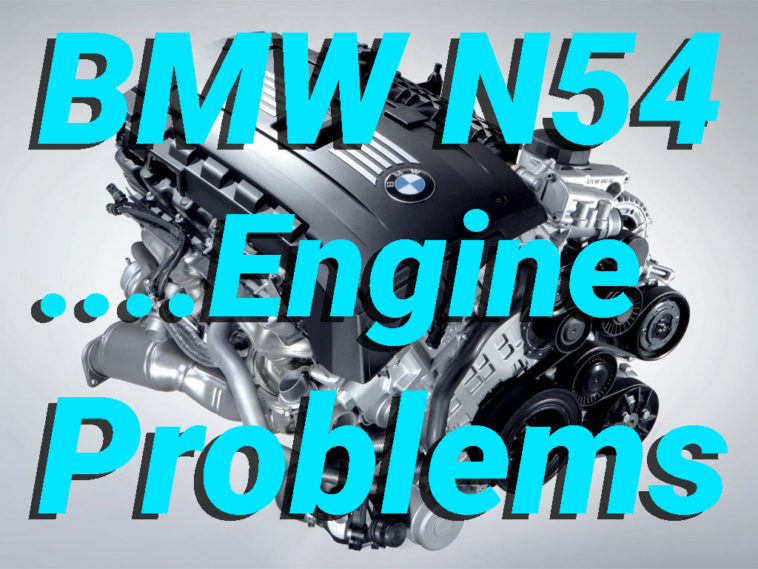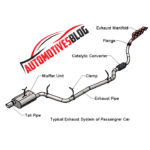The N54 may rightly be considered the best engine ever made by BMW, since it is a twin-turbo, straight 6 engine that is a revision of BMW’s standard line. The N54 can be considered BMW’s first ever turbocharged petrol engine, mass produced and felt guilty that it stunned all the fans by its launch. The engine was a very high-quality piece of engineering art. It has come with a forged crank and connecting rods from the factory (which is rather rare for most sports cars that compete in this price range), which means, the BMW N54 engine could take a lot more boost when modifying the car and finally hitting higher horsepower numbers, before you rebuild the engine with stronger parts. The ten years (from 2006 to 2016) were spent on producing the N54 engine by BMW.
Introduction

Cars with the N54 could easily reach well into the 600 horsepower without having to rebuild the engine with stronger internals. In the BMW’s N54 engine, often high-power numbers were achieved by upgrading the turbos or switching to a single turbo setup, which was good for higher power but bought very high turbo lag with it. Even when stock the N54 was very robust and provided the driver with lots of torque on demand as would be expected from a twin-turbo straight-six engine. The N54 was widely regarded as the ‘German 2JZ’. The 2JZ-GE was a straight-six engine developed by Toyota and used in many of their cars, including the famous and iconic Supra, the 2JZ was naturally aspirated but the 2JZ-GTE was its turbocharged brother, which had its turbos arranged in a twin-turbocharger setup sitting in a sequential configuration to eliminate turbo lag, which Is also similar to the N54.
The N54 is a very robust engine, although it has its fair share of problems like many of BMW offerings due to inferior parts and/or poor design of many components. This article will talk all about the various issues that are faced by N54 owners.
High-Pressure Fuel Pump
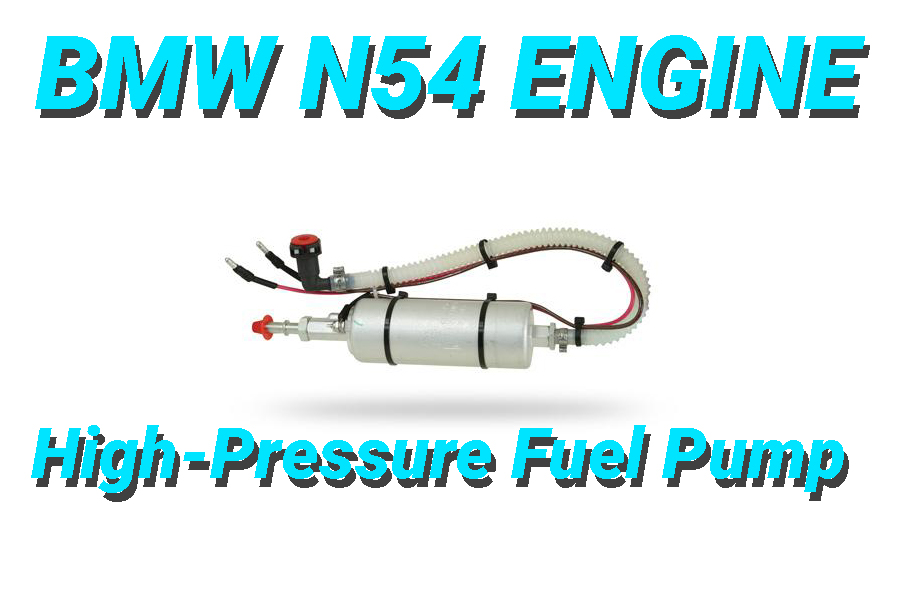
The faulty high-pressure fuel pump is regarded as the most common of the N54’s problems: The N54 utilizes a pump that is completely unlike those that typically are found in the engine compartment. The fuel supply in this engine is completely delivered by a high-pressure fuel pump (HPFP) which is very unusual compared to a low pressure fuel pump (LPFP). The engine primes using the low pressure pump inside the tank to deliver the fuel at low pressure to the engine to start it up, as a result, it is heard when the ignition key is turned into the ON position. Once the engine has been started, the HPFP is driven by the camshaft, which in turn supplies the fuel rails with high-pressure fuel for combustion. The HPFP was very much new to cars of the era which could explain why they faced so many issues especially in its early years, cars that have direct injection utilize HPFPS as the regular fuel pumps pressure is too low for direct injection applications. This technology was mostly new to petrol engines, direct injection with HPFPS has been in use for diesel engines and high-performance aircraft engines for quite some time now.
Symptoms of HPFP failure
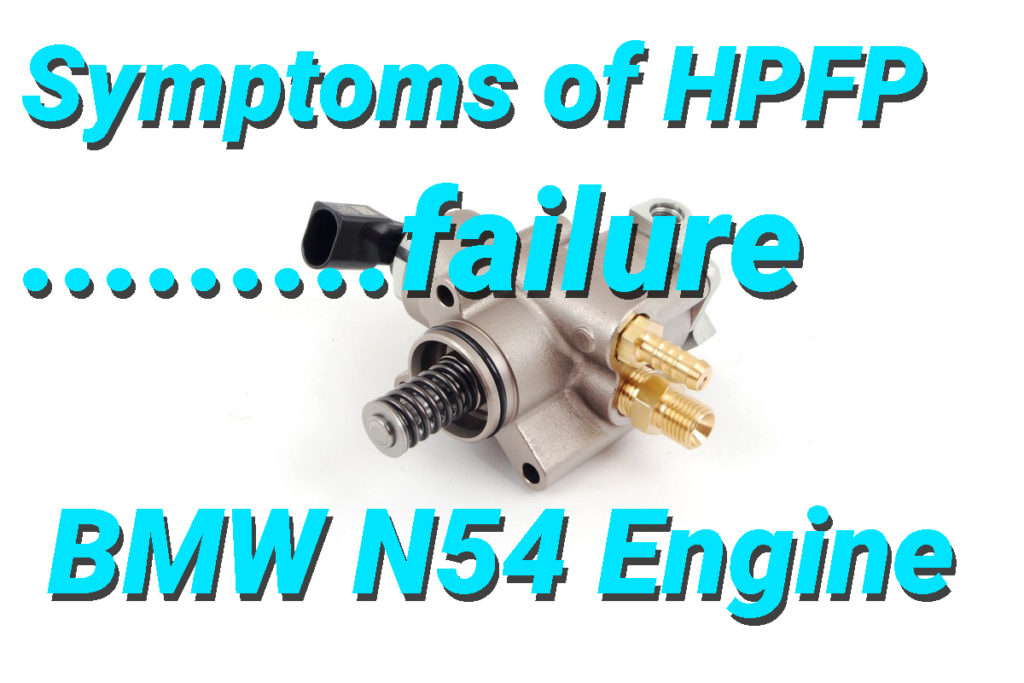
-very long crank time
Your car will take an abnormal amount of time while cranking before the engine finally roars to life.
-check engine light
The gauge cluster will have a half symbol of a check engine light, also known as ½ check engine light. The service engine soon light will also be illuminated.
-Random hiccups/shutoffs while driving
The car will exhibit weird behavior while driving and can even completely shut off while driving, which is very dangerous, especially on the highway. HPFP failure can also cause the car to bypass the ECU to bypass the HPFP and run the car on the LPFP, which in turn also turns the turbos off and puts the car into a limp/safety mode until you can safely reach your destination or get help.
The only fix is to replace the pump, which can cost upwards of $1k. However, BMW has put in place an extended warranty on the Fuel pumps which lasts for 10 years or 120k miles, this warranty was put into place after BMW was sued multiple times by many frustrated owners after they had to replace the pump 3-4 times, although this warranty is only applicable to North American cars. Many owners outside of North America demanded that they be refunded the cost of the repairs.
Turbocharger Failure/Wastegate Rattle
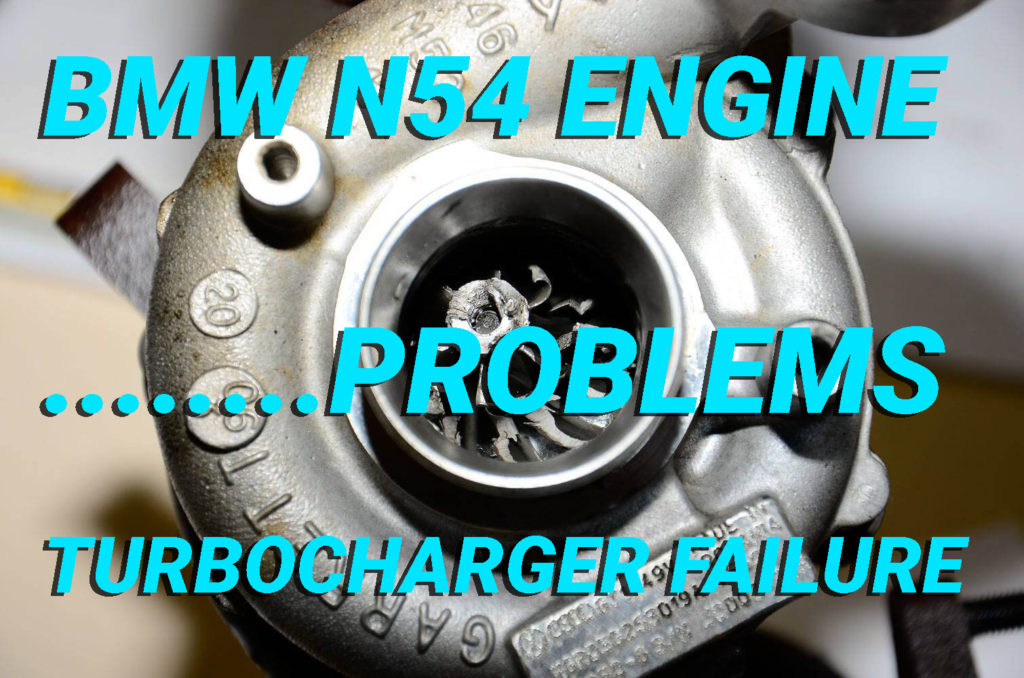
On the N54 it is very common for the turbocharges to fail due to wastegate rattle. This happens from wear, tear, and above-average use of the car. This also happens when the car has been tuned to run a higher boost pressure than factory levels, which causes excessive wear and tear on the wastegate actuator and rods, the wastegate becomes loose, and allows for major boost and vacuum leaks. The boost leaks result in power loss and/or sluggish acceleration, in many cases, the ECU attempts to compensate for the loss of boost pressure and in turn, the turbos can overheat, which causes the Turbos themselves to fail. The fix for this is to replace the turbos which can cost $600 to replace which is excluding labor costs. Another option is to rebuild the existing turbos or buy a remanufactured/rebuilt unit, but the longevity of said units can be questionable.
Leaking Fuel Injectors
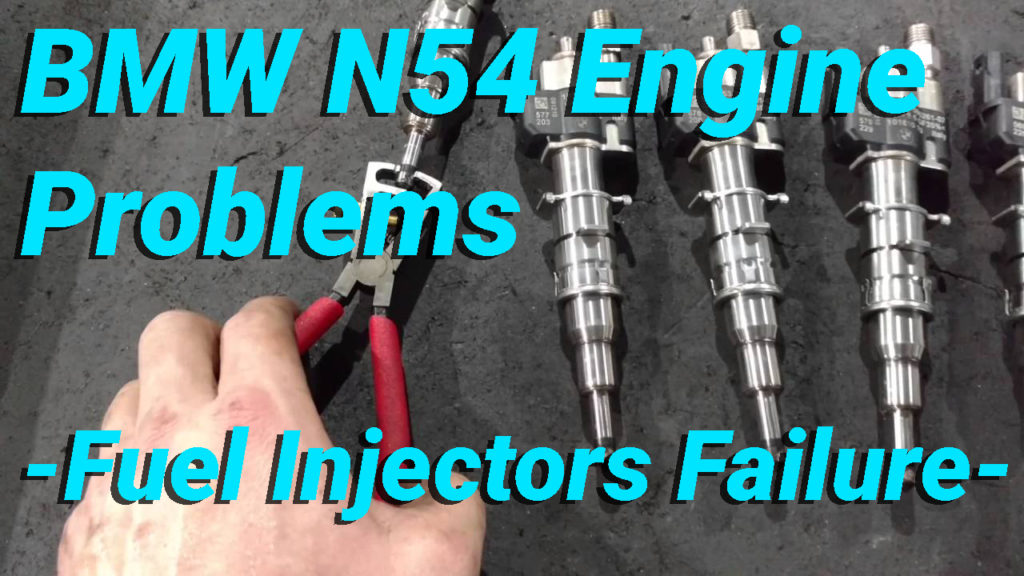
Another common issue on the N54 is the fuel injectors, they are known to fail due to heavy usage and/or wear and tear as the engine ages. The injectors being leaking due to O-ring gasket failure, where the injector meets the fuel rail, the O-ring is made of rubber-like any gasket would be, the rubber slowly deteriorates over time and its sealing properties are lost, which causes the injector to leak. Cracks in the injector body itself could also be a cause of leakage. Since the engine uses direct-injection technology, it is very important for the injectors to be in good condition.
Symptoms of Injector failure
-Increased Fuel Consumption, you will see a noticeable decline in fuel economy.
-Rough Idle and/or misfires, this is caused due to the cylinders receiving too much fuel (running rich) or receiving little to no fuel (lean).
-The engine is very difficult to start after reaching operating temperatures
-Thinning of Oil, caused by fuel dilating the oil, if this is ignored it can lead to a spun rod bearing, which will seize the engine
-Cylinder flooding, the leaking injectors flood the cylinders with fuel, causing partial hydro lock which will disable the engine until the fuel is removed by cranking the engine with the spark plugs and injectors out. In more serious cases, the engine can be fully hydro-locked due to excess flooding of the cylinders.
-Excess fuel odors, you will begin to smell fuel more prominently when around or in the car.
This issue can be prevented from worsening if taken care of earlier on. If neglected this problem would be uneconomical to fix as it worsens and the car could be totaled. The fix for this would be to replace the leaky injector to the tune of $250, however, it is recommended that all the injectors be replaced together to avoid future issues, which would bring the total to $1,500 excluding labor costs. If you must replace the faulty injectors with used ones, be sure to pressure and spray test them at a local repair shop before you buy them as they will save you a lot of time and hassle if the used units end up being faulty too.
Boost Pipe/Chargepipe Failure
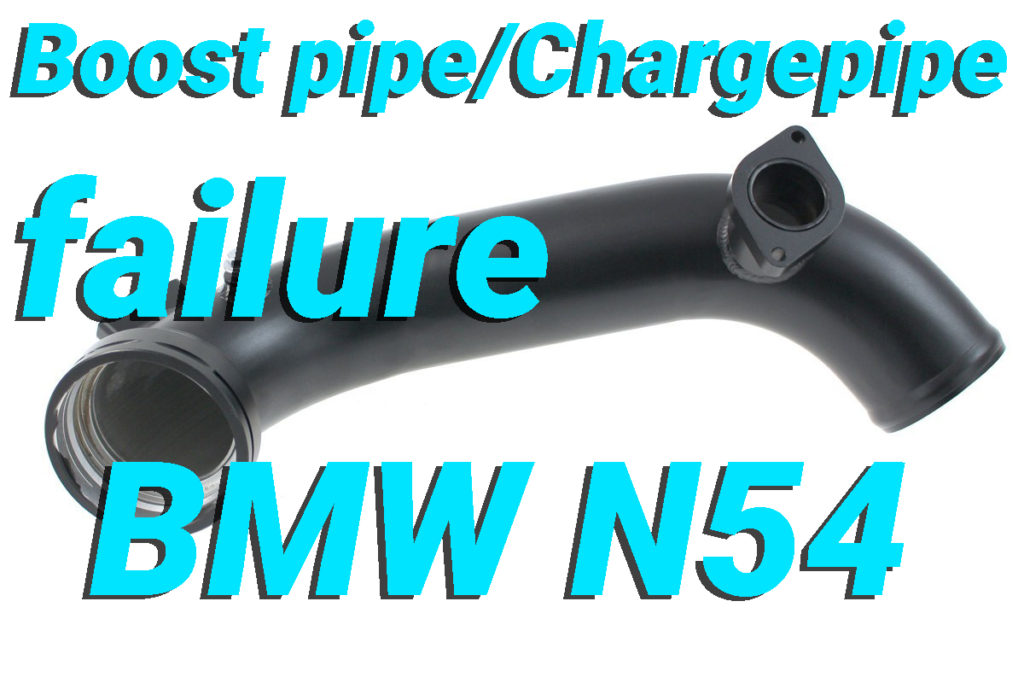
Since the N54 is turbocharged, it has charge pipes that carry boost pressure from the turbochargers to the intercooler and then out to the engine inlet, where a Blowoff valve is also installed depending on what car it is. BMW chose to install plastic charge pipes which over time, became brittle and cracked, allowing most of the boost pressure to escape into the atmosphere. Keep in mind, if your car has a tune to run more boost, it is very likely your charge pipe will fail earlier
Symptoms of Chargepipe Failure
-Check engine light illuminated
-Sluggish acceleration
-Limp mode enabled, ECU will restrict the power
The fix for this is to replace the charge pipe with a new unit, however, the replacement unit from BMW is made of the same material and will crack again after 40-50k miles. The permanent solution is to install an aftermarket pipe that is made of metal, which won’t crack and will be very sturdy.
Water Pump Failure
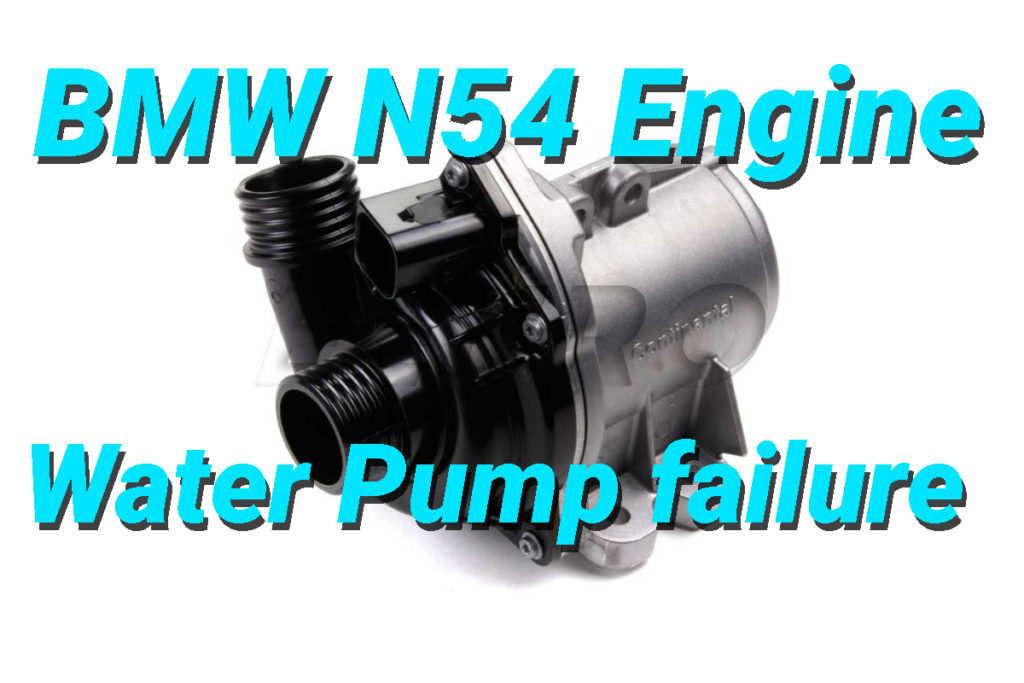
Yet again, a water pump. The water pump on the N54, similar to the one found on the E70 BMW X5, is similarly prone to failure, a poor design coupled with subpar materials causes the pump to fail earlier than comparable examples.
Symptoms of Water Pump Failure
-Overheating engine, abnormal operating temperatures
-Fan running at a higher speed and remaining on even after shutting off the engine
-Illumination of the check engine light, coupled with limp mode which will limit the power available
In order to fix this issue, the water pump has to be replaced with OEM BMW parts, there are no reliable aftermarket pumps that could replace the OEM water pump. The pump costs $200 and another $200 in labor as the pump is very hard to get to as it’s buried deep within the engine bay, it is smarter to get an OEM pump rather than have an aftermarket pump fail faster and having to pay double in labor costs.
Carbon Build-up
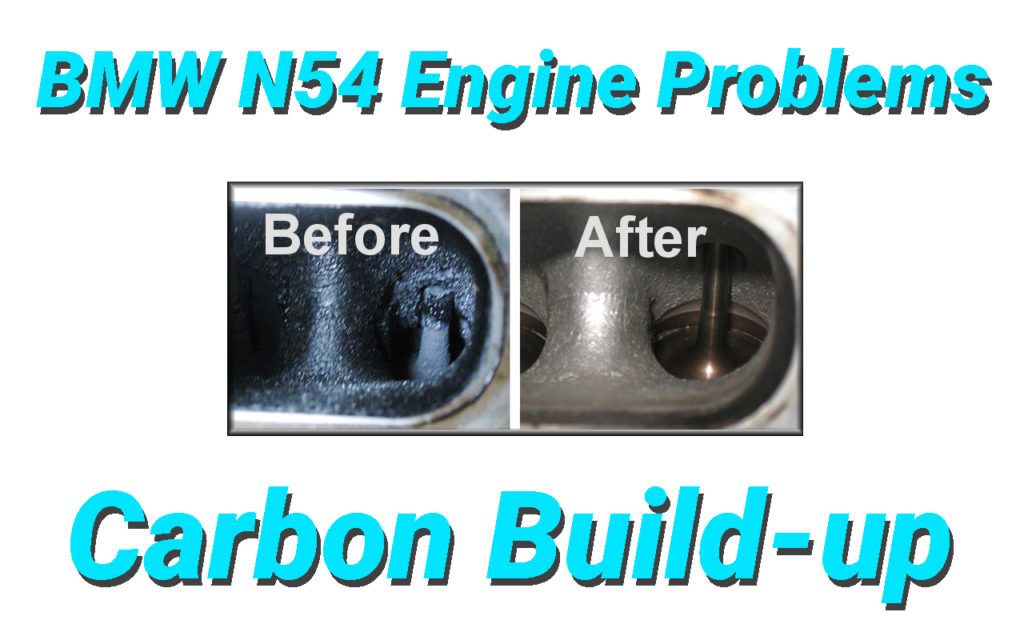
N54 is a direct injection engine. This means that the fuel is directly injected at high pressure into the combining chamber of the engine. Direct injection gives you better control over the flow of fuel; it lets you measure it more precisely, hence is very useful in fuel efficiency and/or even engine tuning for more power. However, this leads to carbon build up in the ports and valves of the engine as, this is because, unlike the traditional engines, the fuel doesn’t flow towards the back of the valves and ports, meaning that they do not get cleaned up by the fuel, leaving behind large amounts of carbon deposits. This isn’t BMW’s fault; all direct injection engines suffer from the same issue.
Symptoms of Carbon Buildup
- Poor fuel economy
- Loss of power
- Misfires, rough idle
The fix for this issue would be to treat the engine with walnut blasting, this involves blasting walnut shells at high pressure into the valves, which helps to completely wipe out the deposited carbon. Once this has been done, you will feel the difference, improved power, throttle response, and better fuel economy. The engine will feel very smooth once again. This issue can be prevented so that you don’t have to perform walnut blasting every 40k miles, that would be to install an oil catch can. The name pretty much explains what it does, the catch can prevent excessive buildup of oil and carbon by catching it before it enters the cylinders, the catch can be taken out and cleaned to clear out the deposits from the can. It doesn’t cost much and prevents the hassles caused by carbon buildup.
Despite all these pitfalls of the N54, it still is regarded as one of the most reliable engines produced by BMW, and its popularity has been accelerated by its tuning capabilities and ability to handle high amounts of power. Due to its popularity, cars with the N54 like the 135i, 335i, and 535i retain their values well despite other problems in BMWs that are not related to their drivetrains.
Conclusion
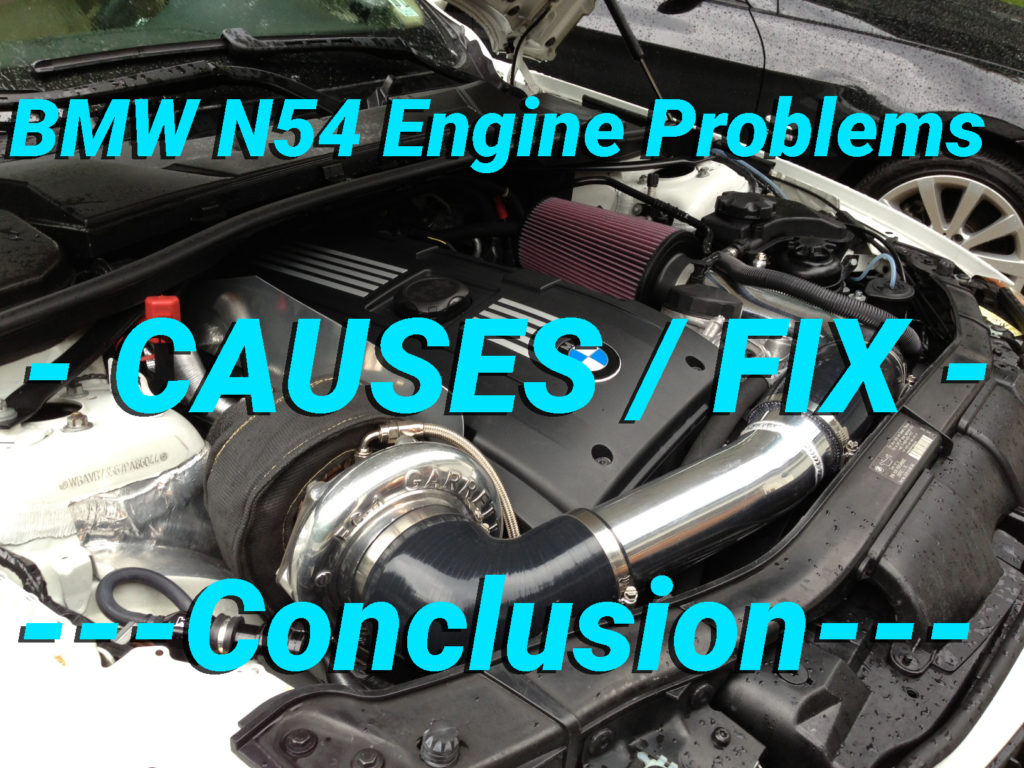
Even though it is a relatively reliable engine, it is a German engine with a lot of technology packed into it, you need to be prepared to spend a lot of money in maintaining the engine, and also having emergency funds if the engine develops unforeseen faults because after all, it is a modern German car.

